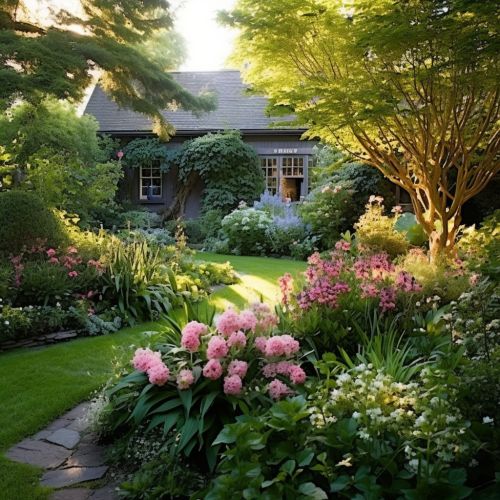Horticulture
Overview
Horticulture is the science, art, technology, and business involved in intensive plant cultivation for human use. It is practiced from the individual level in a garden up to the activities of a multinational corporation. It is very diverse in its activities, incorporating plants for food (fruits, vegetables, mushrooms, culinary herbs) and non-food crops (flowers, trees, shrubs, turf-grass, hops, medicinal herbs). It also includes related services in plant conservation, landscape restoration, landscape and garden design/construction/maintenance, horticultural therapy, and much more. This wide range of food, medicinal, environmental, and social roles make horticulture a significant contributor to human life.
History
The history of horticulture dates back thousands of years. The development of horticulture in the ancient world was closely tied to the settlements of the great civilizations, including the Egyptians, Greeks, Romans, Chinese, and Persians. The science of horticulture was further developed in the Middle Ages with the introduction of new plant species from the New World. The modern era of horticulture began in the 19th century with the development of controlled environment agriculture and the discovery of essential plant nutrients.
Branches of Horticulture
Horticulture is divided into several branches, each focusing on a specific type of plant or aspect of horticultural science. These branches include:
- Pomology: The study and cultivation of fruit.
- Olericulture: The study and cultivation of vegetables.
- Floriculture: The study and cultivation of flowering and ornamental plants.
- Landscape horticulture: The production, marketing, and maintenance of landscape plants.
- Postharvest physiology: The study of the preservation of horticultural crops after they have been harvested.
Horticultural Practices
Horticultural practices vary widely depending on the type and variety of the plant, the geographical and climatic conditions, and the specific needs of the market. These practices can include propagation, pruning, training, grafting, fertilization, pest and disease control, and post-harvest handling.
Horticulture and the Environment
Horticulture has a significant impact on the environment. On one hand, horticulture can contribute to environmental degradation through the use of non-renewable resources, the emission of greenhouse gases, and the introduction of invasive species. On the other hand, horticulture can also play a role in environmental conservation through the preservation of plant diversity, the restoration of degraded landscapes, and the creation of green spaces.
Horticulture and Society
Horticulture plays a vital role in society by providing a wide range of food, medicinal, and ornamental plants. It also contributes to the aesthetic and recreational aspects of human life through the creation of gardens, parks, and other green spaces. Moreover, horticulture can have therapeutic benefits, providing opportunities for relaxation, exercise, social interaction, and education.
See Also


